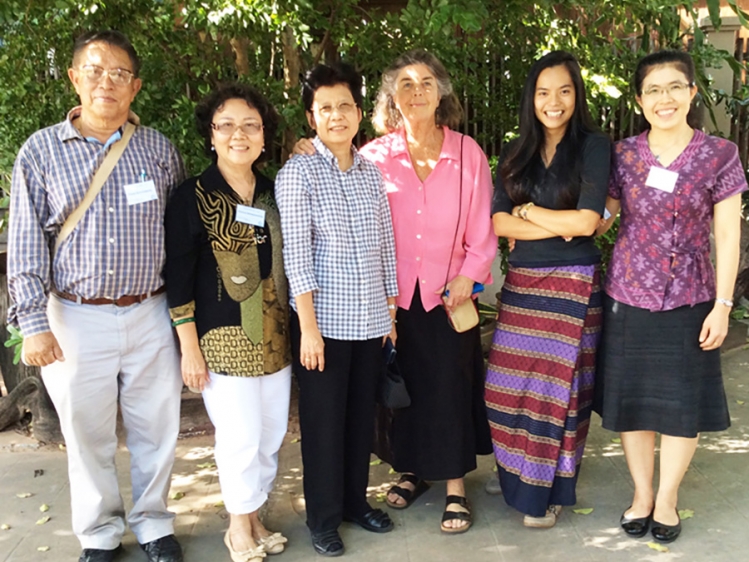It is a great pleasure for us to meet up again after almost ten years and to spend two weeks together exploring the future of Montessori in Thailand and around the world.
In 2006 the first AMI training in the history of Thailand began in Nakhon Pathom, home of the Phra Pathom Chedi, one of the tallest pagodas in the world. I was in charge of one of the four practice environments and several of these people were in my group. At that time there were no AMI classrooms for the students to observe and practice teaching so it was a great challenge to explain Montessori to the students when the could not see and feel it in action. But they took to it so very easily partly because the principles of Montessori align so well to the Buddhist religion of the country where the universal goals are to be gentle, polite, kind, honest, respectful of all life, and to live a life of service. We worked hard and laughed a lot.
In ten years there has been rapid growth in AMI Montessori. From no 3-6 classes to many. For example almost 300 schools have sent teachers to be trained at the 3-6 level and two years ago the first 6-12 class was held. There has also been a two-week introduction to the 0-3 training, and workshops on administration. But now all agree the time to grow is temporarily put aside and the focus will be to raise the quality of these classes to a higher level.
The five people in this picture have fond memories of their time during that first course and have stayed in touch. Pathamaporn Puranan, known as “Noon” (second from the right next to me) is the youngest and I call her my Thai Daughter. She is still in her 20’s but has managed to teach, to take the 6-12 training, to learn to work in administration for her parents school in the south of Thailand, and help with the AMI training here in Khon Kaen.
I asked Noon to tell me what taking that first AMI course has meant to her and this was her reply:
“The course has shaped my value, my purpose in life. It helps me see things differently, to understand the needs of both children and adults. Where I live in the south of Thailand there is so much fighting between groups of people because they do not understand the differences between the cultures and religions of each other. It is my hope that Montessori will change things through the education of our children.”

